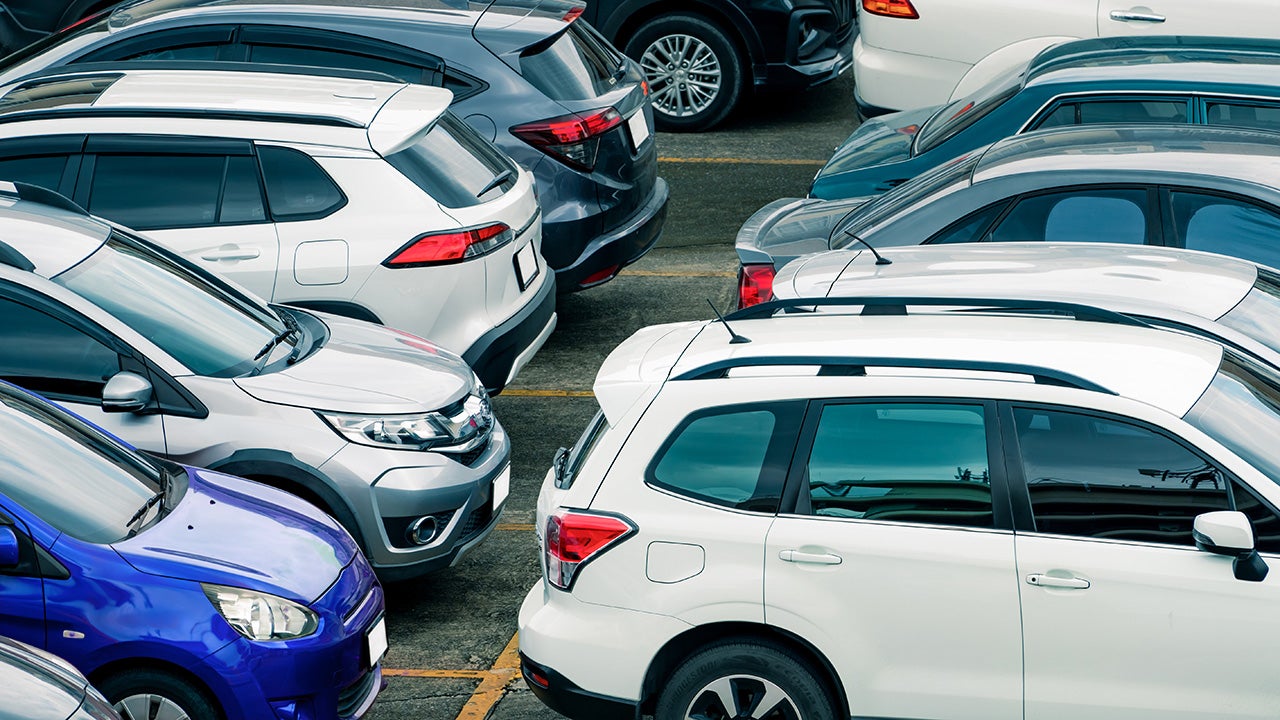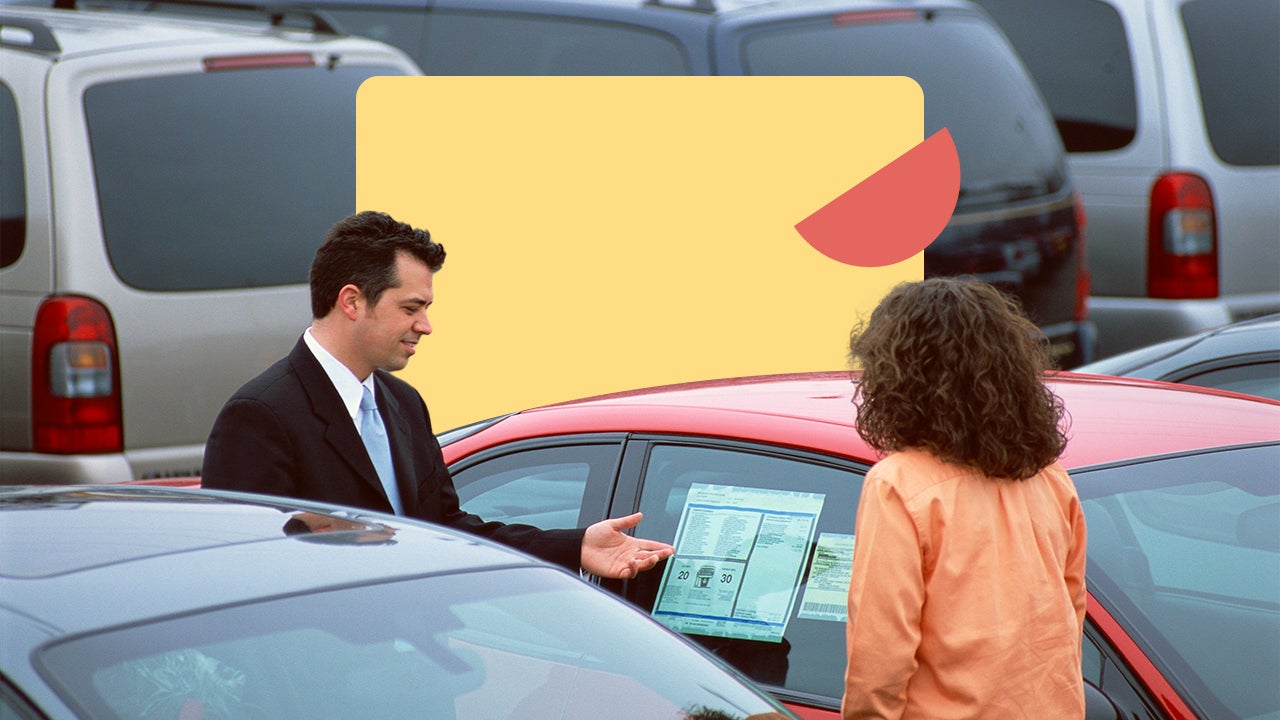What to know when buying a car

Buying a car is a major financial decision, but it’s not just the purchase price you need to worry about. According to Bankrate’s Hidden Cost of Car Ownership Study, the hidden costs of owning a car come out to an average of $6,684 per year in the U.S. — over 10 percent of the average transaction price for new cars. Taking the time to follow a smart car shopping strategy may help you cut down or prepare for those hidden costs and set yourself up for affordable car ownership. Bankrate’s insurance editorial team looked into what to know when buying a car to help you make the big decision.
Things to consider when buying a car
The more information you gather and prepare ahead of car shopping, the better your experience will likely be. In particular, it’s important to shop around, take various financing options into account and research the cost of insurance for your new car.
Compare models from various sellers
Start by considering what type of car you’d like to buy — and where you’d like to buy it from. If you’re in the market for a new car, you’re likely heading to a dealership, but your options may be more varied if you’re on the hunt for a used vehicle.
One good place to begin weighing your options is on sites like Edmunds and Kelley Blue Book, which review new and used car models along with average pricing information. You may want to use the information on these sites to determine which cars — new or used — may be the best fit for your budget and priorities. Because these websites aren’t affiliated with any particular manufacturer, dealer or financial institution, they’re often good resources for unbiased information about car models.
Once you’ve determined one or more models you’re interested in, look for a trustworthy seller in your area. This could be a local dealership or a private seller. If you choose to work with a private seller, be prepared to ask questions and request inspections and documentation in order to ensure you’re getting a quality vehicle at a fair price.
Consider your financing options
While you are deciding on your car, you may want to consider the pros and cons of leasing or owning a vehicle. If you like to trade your car in for a new one every two or three years, a lease might make sense. On the other hand, if you prefer to drive your car for as long as possible, purchasing a car outright may make more sense for you, since you’ll likely have several years after you pay off the loan to save for your next car.
If you’re buying a used car, however, you may want to try to purchase the car with cash and avoid the high interest rates associated with car loans.
Deciding whether to lease or purchase your next vehicle comes down to two primary factors: how frequently you like to swap out your car and what your budget allows. Leasing will cost less on a month-to-month basis and is suitable for a driver who likes to get behind the wheel of the newest rides available. Financing results in owning the car at the end of the loan and does not carry any mileage restrictions, but tends to cost more than leasing.— Rebecca Betterton, Bankrate auto loans writer
Research insurance costs
With auto insurance costs on the rise, it’s a good idea to take a look at car insurance costs by make and model before purchasing a car. While the average cost of car insurance is fairly consistent across most mass-market vehicles, a few types of cars may come with unexpected coverage costs.
For example, if you’re looking for a used vehicle, you may want to steer clear of certain Hyundai and Kia model years. Kia and Hyundai vehicles manufactured between 2011 and 2022 have significant security vulnerabilities which have led to a shocking spike in theft claims in recent years. As a result, some insurers may quote high prices to insure these vehicles or even deny coverage entirely.
For a general idea of how much you might pay based on the vehicle(s) you’re considering and factors specific to you and your location, you can get quick estimates by using a car insurance calculator.
How much will my new car cost?
According to Kelley Blue Book, the average transaction price for new cars was $48,401 as of July 2024. However, the transaction price is only the beginning of your car ownership costs. Below are some of the other average vehicle ownership expenses you’ll need to consider:
- Average monthly car payment: $735 (new cars)
- Average monthly cost of full coverage auto insurance: $194
- Average monthly cost of fuel: $152
- Average monthly cost of maintenance and repairs: $111
- Average monthly cost of vehicle taxes: $99
The good news: research and preparation could help you reduce some of your ownership costs. Rebecca Betterton, who covers auto loans for Bankrate, says, “Even with high interest rates, there are still ways to secure a competitive rate on your next vehicle. Take the time to comparison shop with at least three lenders to help you get the best rate available.” You can do the same with auto insurance: comparing rates from at least three to five car insurance companies is one of the best ways to find a lower premium without dropping coverage.
What to do after buying a car
Your new car journey isn’t over as soon as you make the vehicle purchase. The following steps may help you save time and money when it comes to getting insurance and maintaining your new ride.
Finalize your insurance
Once you have signed on the dotted line, whether you’ve purchased via a dealer or a private transaction, you need to call your insurance company and add the new car to your policy. You want to make sure your insurance policy is active before you drive away. Getting caught driving without insurance can lead to consequences if you have an accident or are stopped by the police. Fortunately, most insurance companies allow you to temporarily add a vehicle to an existing policy so you’re covered until you can officially add your new car to your policy or secure a different auto policy for the vehicle.
- Choose your liability limits: All car insurance policies in the U.S. must have some amount of liability coverage, but the amount mandated by state laws typically isn’t enough to cover the costs associated with a major accident.
- Consider your coverage needs: Most new vehicles need a full coverage insurance policy that includes comprehensive and collision coverage. If you’re financing or leasing your vehicle, your lender likely requires this type of insurance. You can talk to a licensed insurance agent if you’re not sure how much car insurance you need.
- Look into add-ons: Gap insurance, roadside assistance and rental reimbursement coverage are a few of the auto insurance add-ons you may want on your policy.
- Set your deductibles: Certain types of car insurance — such as comprehensive, collision and personal injury protection (PIP) coverage — have deductibles you must pay in the event of a claim. A lower deductible will make it cheaper to file claims, but your premium will be higher. Consider how much you could realistically pay out of pocket in the event of a claim.
- Get your insurance cards: Once you’ve signed up for a policy, you should receive insurance cards from your new provider. Be sure you know where to find your insurance cards in the event of a traffic stop or claim.
Think about maintenance
If you bought your car from a dealer, whether new or used, your car should be up to date on its oil changes and other regular maintenance. If you purchased it from a private seller, it might be beneficial to take the car to your regular mechanic as soon as possible after the sale (if you did not do so before the sale) to get a once over and address any maintenance needs.
A good way to prepare for maintenance costs is to read your new car’s owner’s manual. This should include a maintenance schedule recommended by the manufacturer. Following the optimal maintenance schedule may help to reduce your ownership costs over time by limiting wear and tear and improving your vehicle’s resilience in the event of accidents.
Frequently asked questions
Why we ask for feedback Your feedback helps us improve our content and services. It takes less than a minute to complete.
Your responses are anonymous and will only be used for improving our website.
You may also like








